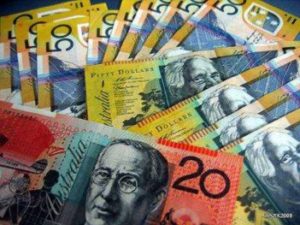RBA evidence that you’ve been played for a sucker – Damian Penston

Our monetary system is very badly misunderstood, which is the reason behind many of the most severe prob- lems faced by society. Economic crises and unemployment are not difficult problems to resolve once the root causes are properly understood, so it’s extremely valuable to build up a big picture view.
The purpose of this article is to demonstrate how asking a few clear questions, in a way that doesn’t allow for ambiguous answers, can help to quickly build up a big picture view that may help you see the World more clearly than most economists. I shall discuss three questions that I recently directed to the Reserve Bank of Australia (RBA) and the responses received.
The questions that were asked are fundamental to understanding macroeconomics and recognising whether Government policy is making effective use of the available tools.
Question 1: Can the RBA ever, under any circumstances, run out of Australian dollars? Answer: No.
That is exactly how we asked the question, word for word. It’s a taboo subject for central bankers, so we were pleasantly surprised to receive their response in writing.
Next, we wanted to ask if the RBA has ever bounced a cheque from the Commonwealth Government, but we used very specific language so that there could be no ambiguity in their answer.
Question 2: Has there ever been an occasion in the past where the RBA has refused to honour a payment that was requested by the Common- wealth Government which has been made using the correct format and doesn’t contravene any laws or sanctions? Answer: No.
Why does this matter?
There have been multiple newspaper headlines with dire warnings that Australia is at risk of losing its AAA credit rating. The large credit ratings agencies Standard & Poor’s and Moody’s have made threats to down- grade unless the Government reduces the amount of money circulating around the economy by securing a budget surplus (whose implementation would cause a recession!).
They claim that there is a possibility that Australia may default on its debt repayments, but the Australian Office of Financial Management’s data shows that 99.998% of the National Debt is in Australian dollars. If the RBA has the ability to create an infinite number of dollars and they’ll always honour a payment that has been requested by the Government, then why do we even need a credit rating in the first place?
The answer is simple – we don’t! And any claim to the contrary is spurious, at best.
The national debt is an extremely mis- understood topic that deserves its own separate article. Suffice to say that it isn’t what many people believe it to be as the language that is commonly used is counter-intuitive.
Final question
Now that we’ve established that the Government can arrange to have an infinite amount of money created just by asking, it’s logical to ask why we pay taxes. That’s not something that the RBA is in a position to answer, so it’s point-less asking them.
However, there are some economists who say that taxes don’t fund spending and that money ceases to exist once taxes are paid. The Government of Australia has a set of accounts called the Official Public Account Group (the OPA Group) which are managed by the Department of Finance, but we found a way of finding out from the RBA if tax money really does fund Government spending.
If you look at the glossary of terms on the RBA’s website, you’ll see that it says the following: ‘Money base’ defined as holdings of banknotes and coins by the private sector plus deposits of banks with the Reserve Bank of Australia (RBA) and other RBA liabilities to the private non- bank sector.
To put that into plain English, the money base is the term used for all money which has been created by the Government sector. It’s clear from the definition that only coins, notes and the digital money that commercial banks have in their accounts at the RBA are counted towards this – the balances of Government accounts are not included (the OPA Group* ). So, we sought confirmation…
Question 3: Do any of the monetary aggregates which are published by the RBA include the balances of any accounts in the OPA Group? Answer: No.
The Government has no money in any of its accounts. If you search through the Department of Finance website, they even say that the balances in the special accounts (which are part of the OPA Group) aren’t money.
What’s going on?
When the Government receives your taxes, the money you’ve paid ceases to exist. The numbers in the Government’s accounts aren’t money, but they are used as a way of keeping score for budget purposes. When a certain amount of money is spent against those accounts, the numbers in the accounts go down by an equal amount and are not allowed to go below zero. Every time the Commonwealth Government spends, new money is created (refer to questions 1 and 2).
Why does this matter?
This topic also deserves its own article, or several articles, but what you need to understand for now is that taxation doesn’t fund spending – it’s a tool for preventing hyperinflation (an economist would call it a tool for regulating aggregate demand). Taxes are often regard- ed as unfair, but so are the alternatives (unless one is able to create a higher consciousness society that doesn’t use money!).
If taxes are not collected at all, there’s a chance that people will stop using the currency and begin using other things as money, such as cinema tickets, supermarket coupons, cattle, etc. There are different types of taxes, most of which cause distortions in the economy and some are more unfair than others.
When you combine the answers to questions 1, 2 and 3, it becomes easier to make sense of some of the solutions which have been proposed for problems like unemployment and private sector debt. It also becomes clear that budget surpluses are unnecessary, and that AAA credit ratings for monetary sovereign governments are a farce and that anyone who says otherwise is acting against the public interest.
If you’ve read this far, then you should have a better understanding of the money system than most economists and virtually every politician on the planet.
How does that make you feel?
* The Commonwealth’s central bank account. The OPA is one of a group of linked bank accounts, referred to as the Official Public Account Group of Accounts. OPAs are maintained with the Reserve Bank of Australia (RBA), as required by subsection 53(3) of the PGPA Act.
Source: Fair Money Australia website http://www.fairmoney.org.au/article-2017-03-24-rba-evidence.php




























